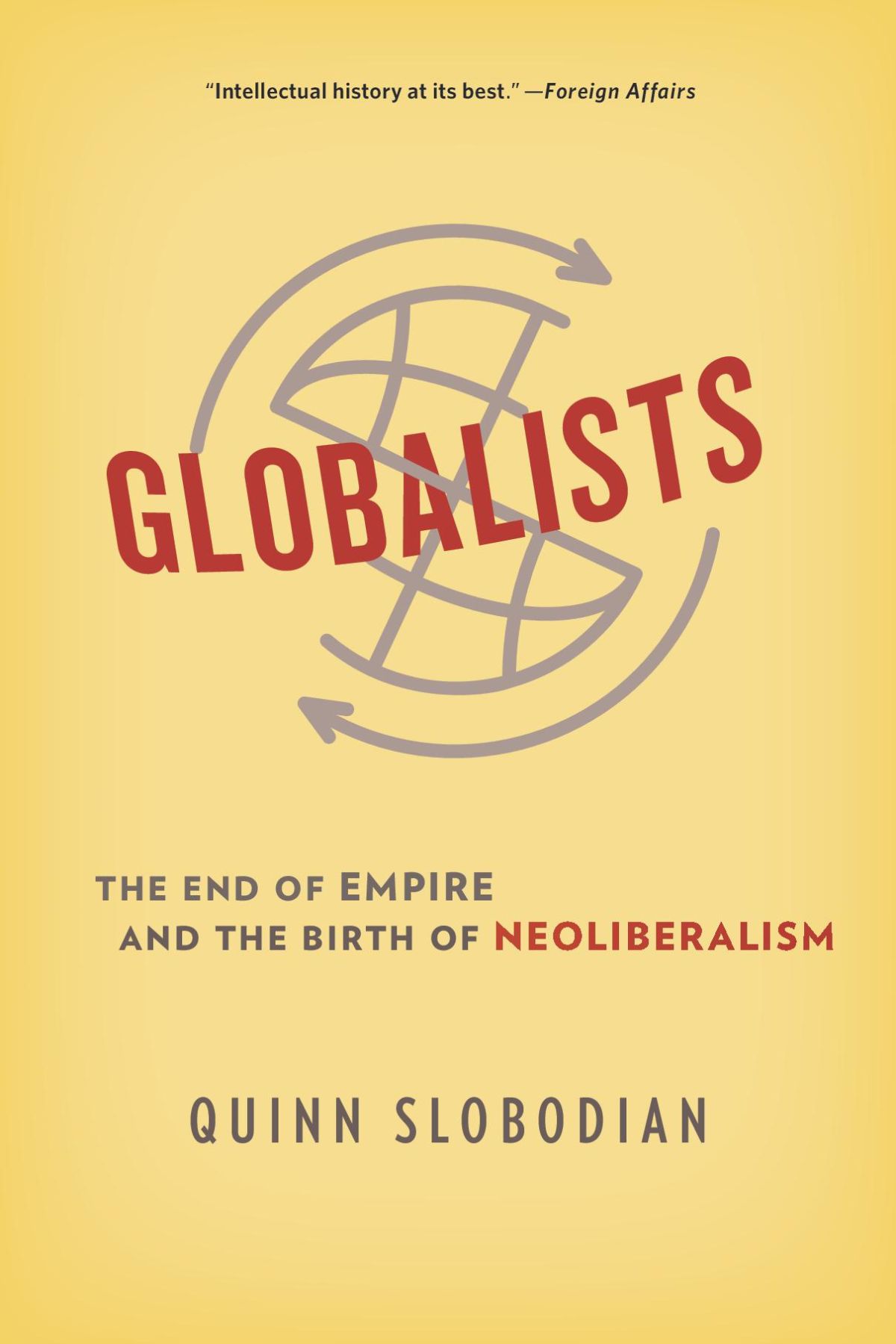Today, the European Union offers the fullest realization of the neoliberal political vision. There is no sovereign people of Europe; the authority of European institutions rests on a body of law and treaties. The European Union is not a nation, but it is not simply an agreement among nations either. Unlike international agreements, European regulations are directly binding on individuals and not only on the government signing them. In many areas, European regulations and authorities don’t merely constrain, but actually replace, their national equivalents. (This is what makes Brexit so difficult.)
Europe’s incomplete integration—with its confusing mix of powers delegated to Brussels and powers retained by national governments—is often seen as a design flaw. But to Slobodian’s globalists, partial integration is precisely the goal—it means that neither the national nor the international body have the legitimacy and capacity to direct the economy. With no international entanglements, a government is sovereign; with complete integration, sovereignty moves to the higher level. What is wanted is a situation in which some powers but not others are delegated, leaving neither national nor super-national governments able to act outside of circumscribed role.
The argument here parallels that of left critics of Europe such as Wolfgang Streeck, who similarly describes Europe as the fullest realization of Hayek’s “catallaxy”—a state without a sovereign that exists only to enforce property rights. But Slobodian offers a richer picture of the links between neoliberal thinkers such as Hayek and the founders of the European Union.
It is the neoliberal paradox: state power is needed to enforce market relations and property rights, but when it rests on democratic politics, it can easily turn into a vehicle for broader economic planning.
As he carefully documents, for many of those who directed the early steps toward integration, “it was the limiting of national sovereignty that was key.” For Ernst-Joachim Mestmäcker, who framed Europe’s first common competition policy, the goal of integration was to “exclude control of interstate trade as an instrument of national economic policy.” He saw the purpose of “customs unions [as] to decrease the ‘autonomy’ of individual members.” Similarly, Slobodian points to West German economics minister (and later Chancellor) Ludwig Erhard, who argued for European integration as “a system of order that exerted what one might call an anonymous coercion on the behavior of nation-states.” Anonymity is key: once there is a decision-maker, their decisions are open to challenge and require some source of political legitimacy.
